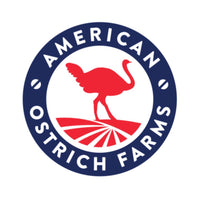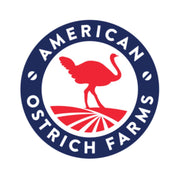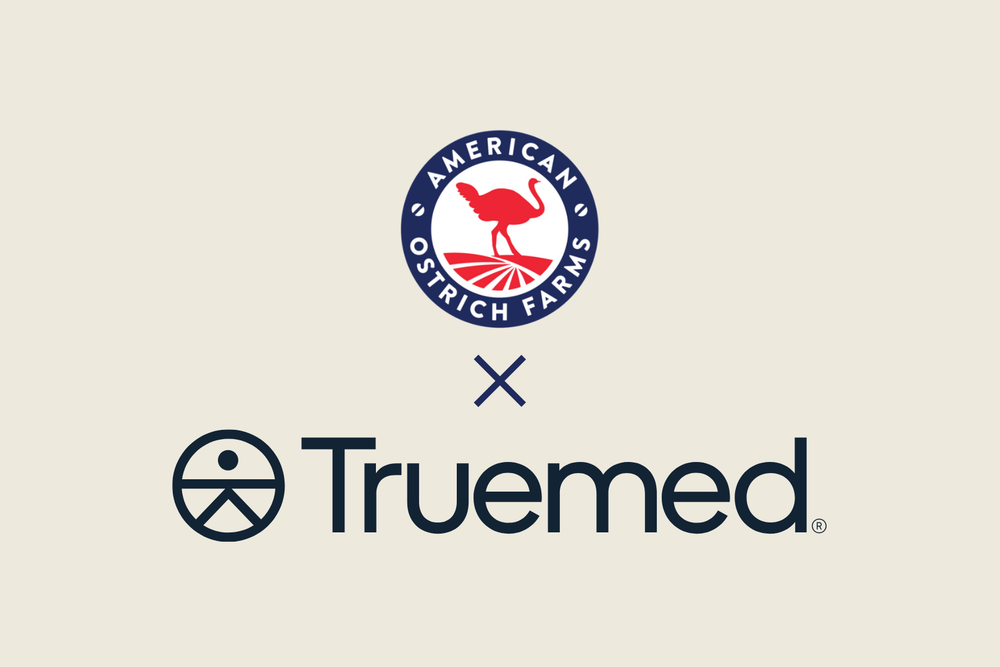In a world increasingly focused on sustainability and local collaboration, two Idaho-based companies, Payette Brewing and American Ostrich Farms (AOF), have forged what might first appear an unlikely partnership. After all, what do a craft brewery and an ostrich farm have in common? A lot more than meets the eye, it turns out.
Nestled along the river in the heart of downtown Boise, Payette Brewing crafts award-winning beers while building a culture that connects, educates, and makes a difference. Less than twenty miles south, among sprawling acres of native sagebrush, AOF produces ostrich – a uniquely healthy red meat – with a focus on environmentally sustainable, low impact ranching.
These two businesses are working together to reduce waste by upcycling barley from Payette’s brewing process into high-quality, locally-sourced feed for AOF’s ostriches. The collaboration highlights both companies’ commitment to sustainability and building relationships that benefit Idaho’s vibrant agricultural community.
FROM FIELD TO FEED
 Idaho’s fertile soils and favorable climate have made it the top barley producer in the United States. This is where the journey of Payette’s grain begins. In August and September, barley is harvested and then delivered to Payette Brewing. The grain there contributes to a meticulous brewing process that yields some of Idaho’s finest craft beers. After the barley has given flavor and character to the beer, its work at the brewery is complete and the result is ‘spent grain.’ Spent grain is a byproduct of the brewing process that typically poses a disposal challenge for breweries. The lifecycle of Payette’s barley, however, is not yet complete. Through its collaboration with AOF, Payette Brewing is able to upcycle its spent grain, transforming it into a valuable resource instead of waste.
Idaho’s fertile soils and favorable climate have made it the top barley producer in the United States. This is where the journey of Payette’s grain begins. In August and September, barley is harvested and then delivered to Payette Brewing. The grain there contributes to a meticulous brewing process that yields some of Idaho’s finest craft beers. After the barley has given flavor and character to the beer, its work at the brewery is complete and the result is ‘spent grain.’ Spent grain is a byproduct of the brewing process that typically poses a disposal challenge for breweries. The lifecycle of Payette’s barley, however, is not yet complete. Through its collaboration with AOF, Payette Brewing is able to upcycle its spent grain, transforming it into a valuable resource instead of waste.
After brewing, spent grain is still rich in nutritional value, providing a good source of fiber, proteins, vitamins, and minerals. Payette collects this material for transport to nearby American Ostrich Farms. At the farm, spent grain is mixed with ingredients such as corn, sunflower seeds, and molasses, ensuring that the ostriches receive a balanced, nourishing diet. The process of incorporating spent grain into ostrich feed not only enhances its nutritional profile, supporting the health and vitality of the ostriches, but also creates a closed-loop system that benefits both the brewery and the farm.
Collaborations like this one can be difficult to implement due to bureaucratic red tape. In Idaho, however, which has long been a powerhouse of agricultural production in the United States, streamlined policies foster collaborations that drive innovation, sustainability, and economic growth. It is this environment that has enabled Payette and AOF to establish their grain upcycling program.
DOING THINGS DIFFERENTLY, DOING THINGS RIGHT
Both Payette Brewing and American Ostrich Farms have long been deeply committed to sustainability and supporting their local community - even when it means bucking the status quo. Payette Brewing, for instance, made a bold move to become the first craft brewer in Idaho to can its beers instead of bottling them. This decision was not only a nod to better preserving the quality of their beer but also a significant step towards reducing their environmental footprint. Canning, as opposed to bottling, results in less energy consumption and a smaller carbon footprint, aligning with Payette’s dedication to environmental stewardship.
Meanwhile, recognizing a lack of resilience in the local meat and poultry supply chain exacerbated by the pandemic, AOF took a leap of faith by building its own USDA-inspected processing plant. This move not only gave AOF greater control over the quality of its products, but now also provides much needed processing services to nearly 50 independent ranching families across Idaho and surrounding states. Constructed from the ground up, the facility was designed to have as little impact as possible on the environment. It is Idaho's only USDA facility utilizing a self-contained, microbe-powered underground system to remediate its wastewater. After treatment, the water recycled back into the aquifer is cleaner than what comes from most residential homes. This is in sharp contrast to conventional holding pools used by most plants, where much of the water is lost to transpiration & the remaining sludge must be hauled away.
CRAFTING QUALITY

As each company has grown, Payette Brewing and AOF have been able to bring more of their processes in house, a strategic approach that enhances quality control and boosts local employment. Payette Brewing’s in-brewery canning line ensures that every can of beer maintains consistent quality and freshness, allowing them to swiftly adapt to market demands and maintain high standards. Similarly, AOF’s USDA facility allows the farm to ensure that each product is perfectly hand-cut, flash frozen, and properly stored before it reaches a customer’s plate.
By bringing these operations in-house, both companies not only improve product quality but also create valuable local jobs. These positions come with industry-leading wages and benefits, contributing to the local economy and fostering a skilled workforce. This approach exemplifies how local businesses can invest in their communities while maintaining stringent quality standards.
“Partnering with Payette Brewing aligns perfectly with our mission to implement sustainable practices throughout our operations,” said Alex McCoy, CEO of American Ostrich Farms. “By utilizing their spent grain, we’re able to provide our ostriches with a superior diet while also reducing waste and supporting local agriculture. It’s a win-win for everyone involved.”
Payette Brewing and American Ostrich Farms offer a model of how local businesses can innovate to create a more sustainable future. By upcycling spent brewers grain into high-quality ostrich feed, these companies are not only reducing waste but also reinforcing their support of the local agricultural community.
ABOUT PAYETTE BREWING COMPANY
For thirteen years, Payette Brewing Company has been Idaho’s go-to for "Adventure Ready" beer, perfect for hikes, river trips, and mountain rides. Founded by Mike and Paige Francis in 2010, Payette pioneered canned beer in Idaho and has since won "Best Brewery" in Boise every year since 2012. Their commitment to the community is evident through initiatives like "Kegs 4 Kause" and "Payette Forward," supporting local nonprofits and important causes.






